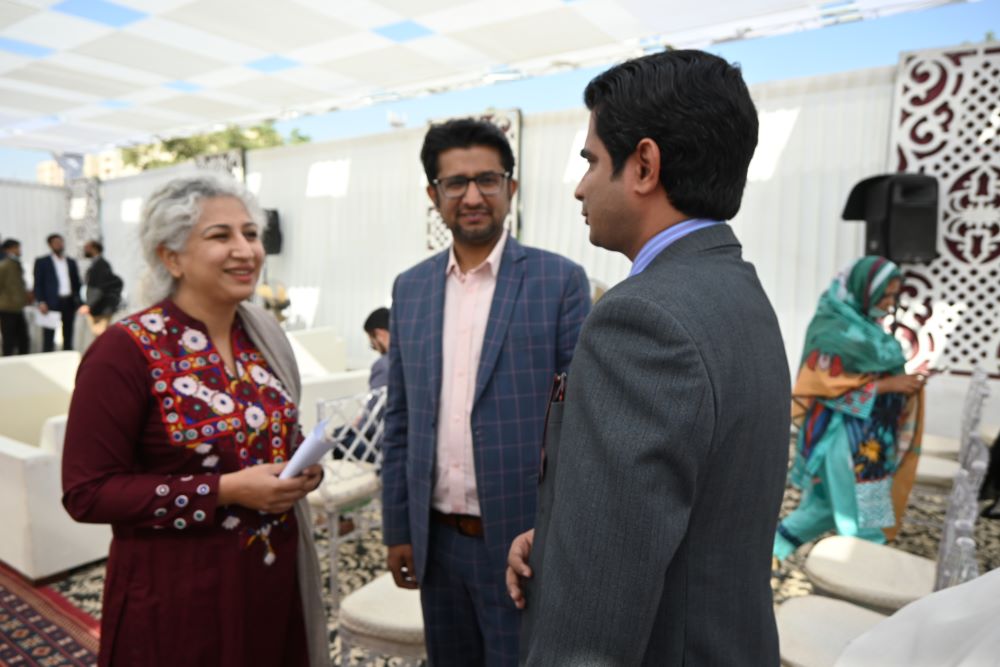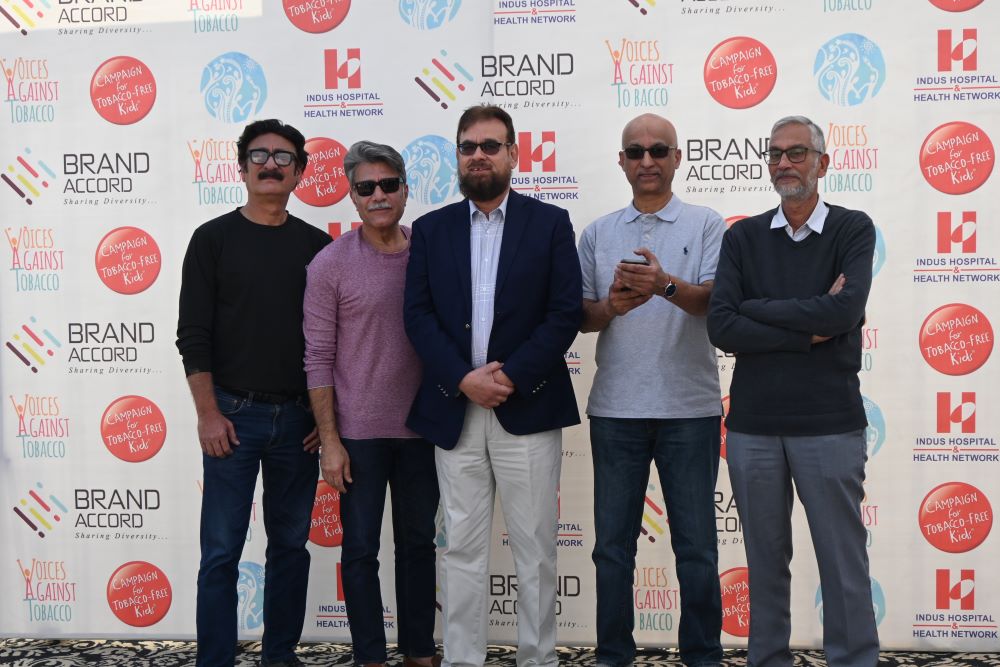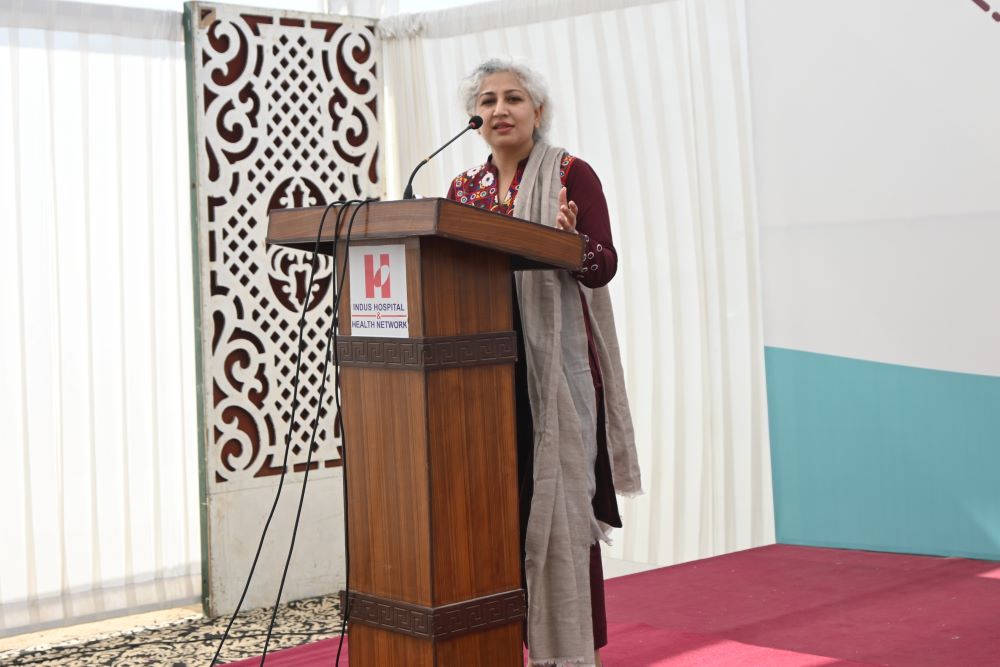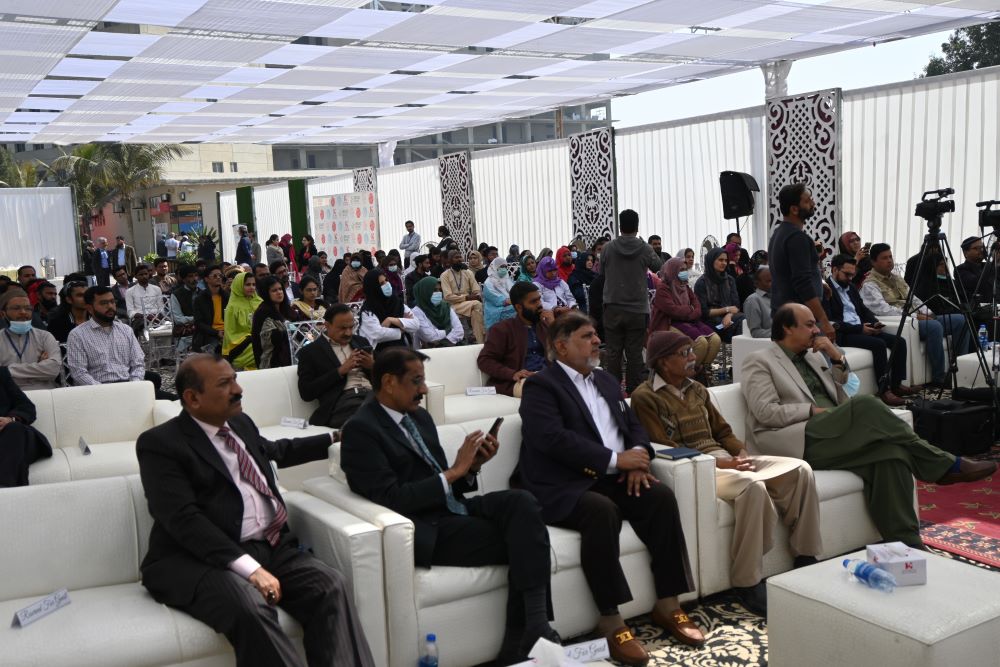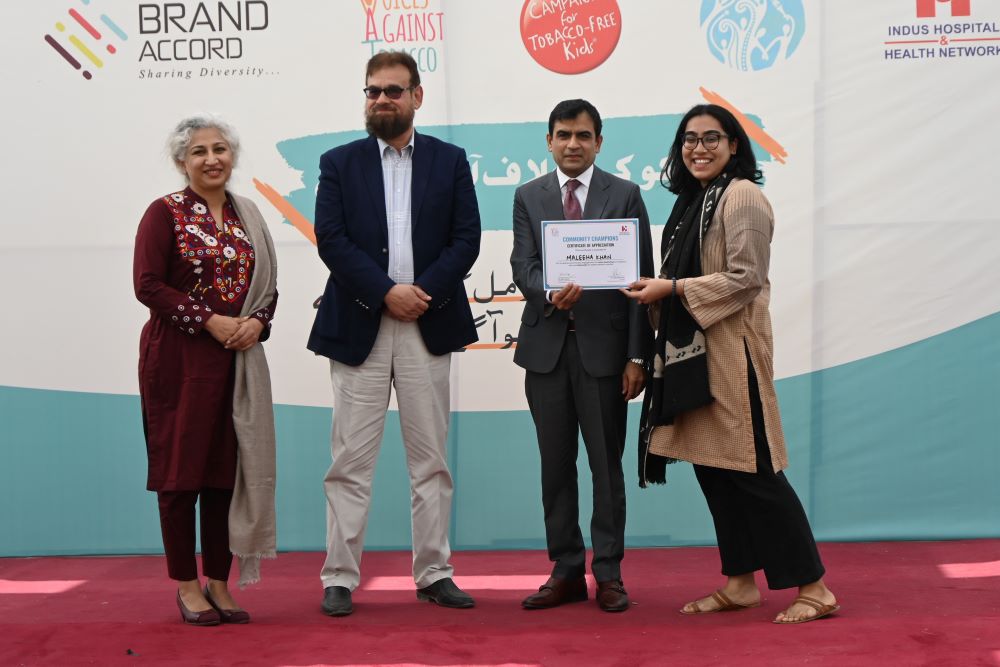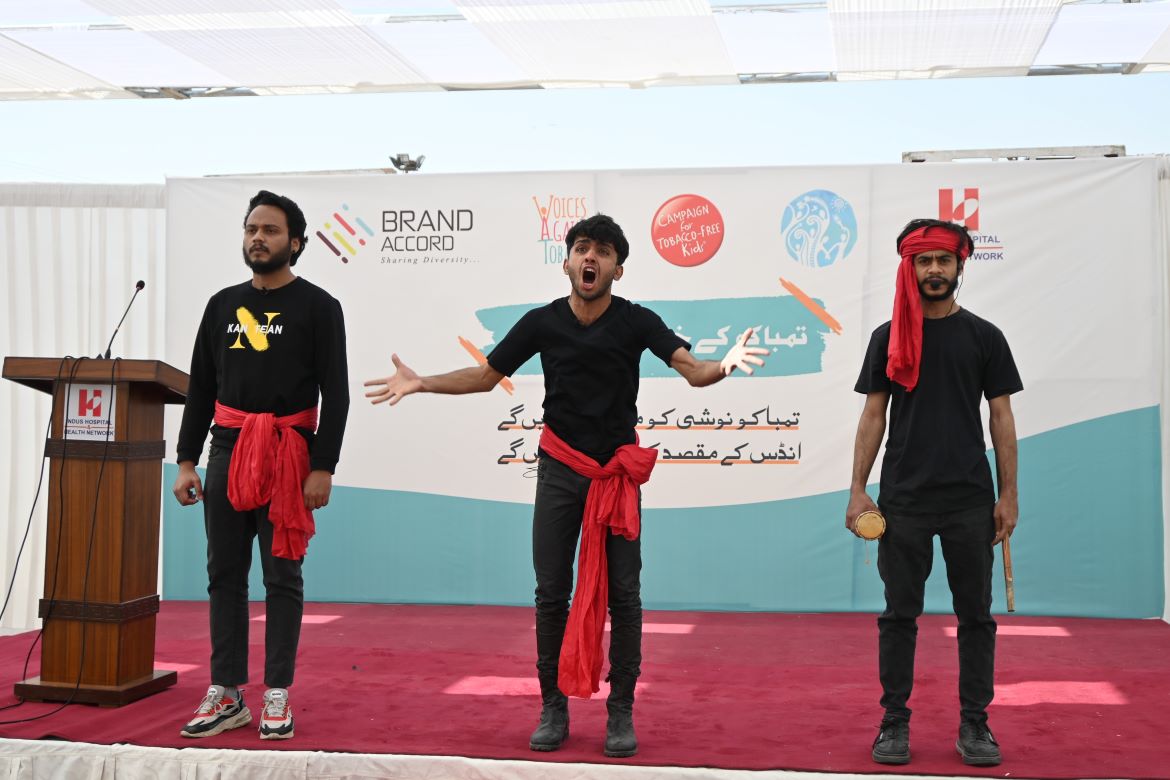Voices Against Tobacco (VAT) Holds Improv Theatre for Tobacco Awareness and Prevention
-
by
sakina juzzar
- No Comments on Voices Against Tobacco (VAT) Holds Improv Theatre for Tobacco Awareness and Prevention
Voices Against Tobacco (VAT), an initiative of Indus Hospital & Health Network (IHHN), hosted notable guests, staff, and the public for an impactful theatre performance on the impact of tobacco at The Indus Hospital – Korangi Campus on January 25, 2023.
This event was held to engage the public, private sector, and policymakers in dialogue on the impact of tobacco use, especially on marginalized communities, and the need for improved tobacco control advocacy. It was done in partnership with Brand Accord and the Campaign for Tobacco-Free Kids (CTFK).
The senior leadership from IHHN attended the event, including Dr. Abdul Bari Khan, President of IHHN; Mashhood Rizvi, Executive Director of IHHN’s Communication & Resource Directorate; and Dr. Saima Saeed, Director of IHHN’s Lung Health Program and Consultant Pulmonologist. Representatives of AKU, SIMU, SPARC, SSDO, and PANAH were also present.
Following a recitation of the Holy Quran, opening remarks were given by Dr. Samia Saeed, who briefed the audience on the widespread impact of Tobacco on the people of Pakistan and the work being done by VAT to counter it. This was followed by an exciting and engaging theatre performance that sent a clear message about the prevalence of tobacco in marginalized communities and its impact on the youth. The play also touched upon tobacco sellers placed near schools which is illegal.
Speeches were given by Mr. Muhammad Iqbal Memon, Commissioner of Karachi; Jibran Siddiqui, CEO of Brand Accord; and Dr. Ghulam Mustafa, Managing Director of STEVTA. All thanked the team at IHHN and particularly its Community Engagement Centers (CEC) for their instrumental role in making the campaign possible. They also expressed hope for partnering with IHHN in future healthcare initiatives.
Afterward, Certificates were distributed to the team members involved in making the campaign a resounding success. Closing remarks were given by Dr. Abdul Bari Khan, who thanked the audience, the team at IHHN, and the partnering organizations for their hard work and efforts in strengthening Pakistan’s primary healthcare.
“For the last 15 years, IHHN has worked to improve the health and livelihoods of communities across Pakistan to improve Pakistan’s health indicators. With Pakistan having a growing youth population, IHHN places utmost importance on protecting the health, well-being, and livelihood of Pakistani youth for their future and the country’s future.”
-Dr. Abdul Bari Khan, President of IHHN
Background:
In response to the urgent need for tobacco control in Pakistan, Indus Hospital & Health Network (IHHN) launched its Voices Against Tobacco (VAT) program in 2021 with the aim to create a dialogue and meaningful change to improve tobacco control measures in the country. VAT has worked across Sindh and Punjab to engage the youth to promote positive cultural change amongst their peers and communities by empowering them to take ownership of their health and future.
In collaboration with the Campaign for Tobacco-Free Kids (CTFK), VAT is now focusing on investing in marginalized communities with limited access to information and resources. Subsequently, VAT has achieved this through valuable community engagement, including improv theatre, which has shown itself to be an excellent method of relaying information to audiences in a collaborative and engaging manner.
VAT collaborated with Brand Accord to adapt tobacco awareness and advocacy messaging into a theatre performance that will have a long-lasting impact. The performance touched on several important aspects of tobacco, including health consequences, accessibility for the youth, economic impact, need for advocacy, and lack of regulation and implementation.
VAT’s community activities have been strongly supported by IHHN’s Community Engagement Center (CEC). CEC health workers were trained on tobacco awareness and tobacco control advocacy, after which they engaged with community members on the ground in dialogue on tobacco, encouraging them to advocate for their own well-being, as well as that of their larger communities. Leveraging their long-standing relationships with marginalized communities across Karachi, the CEC health workers are supporting the execution of improv theatre performances across key areas where tobacco use is extremely prevalent, including Korangi, Lyari, and Baba Island. Thus far, VAT has engaged over 100+ community members through eight street performances.
The performances have garnered an extremely positive response. People support the cause as they want their family members and spouses to quit. For current users moved by the performance, tobacco cessation leaflets were handed out. Signatures were also collected from the community to support the new VAT petition. Across the board, community members agree that the youth should not have access to tobacco.
Voices Against Tobacco (VAT) Future Endeavors:
VAT is also working on improving tobacco control policies through youth and community advocacy. Last year, VAT introduced a petition to ask for a 30% tax increase on tobacco products. This petition garnered more than 8,000 signatures from communities all across Sindh and Punjab.
With combined efforts of IHHN, CTFK, SPARC, PANAH, and other partners, a tax increase on tobacco was included in the 2022 Finance Bill – the first tobacco tax increase in 4 years. In the wake of this great achievement for the anti-tobacco cause, this year VAT has launched a new petition to ask for a ban on all novel tobacco and nicotine products in Pakistan to protect the youth and adolescents from addiction and cognitive damage. The petition can be signed at https://indushospital.org.pk/voices-against-tobacco
